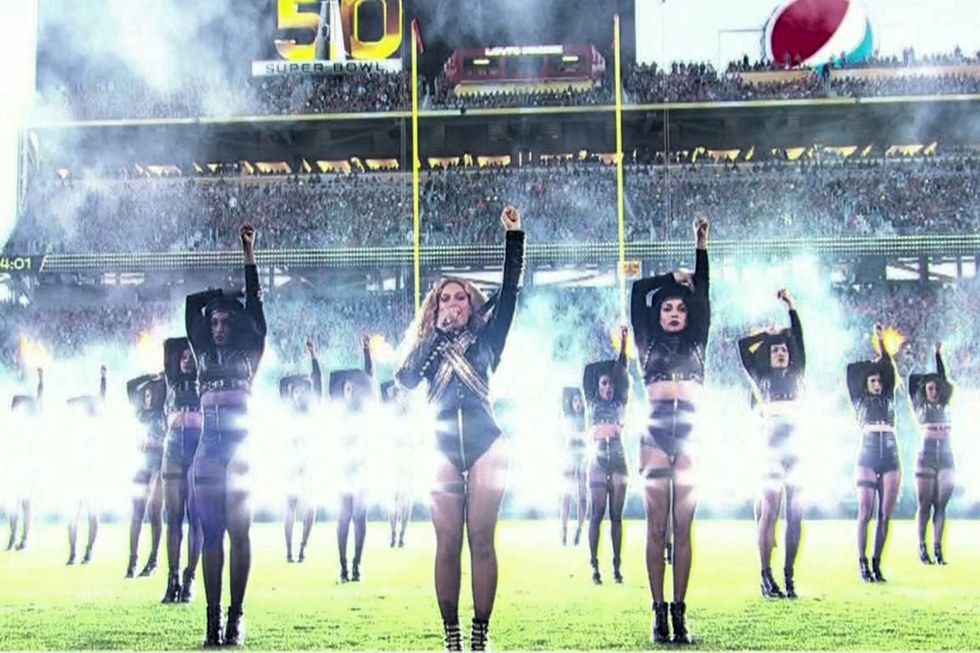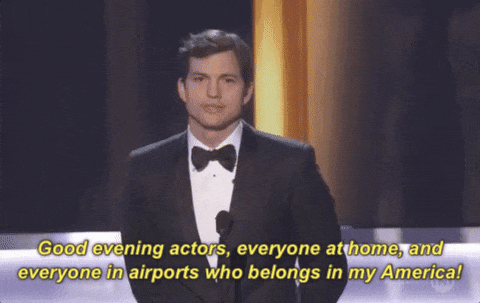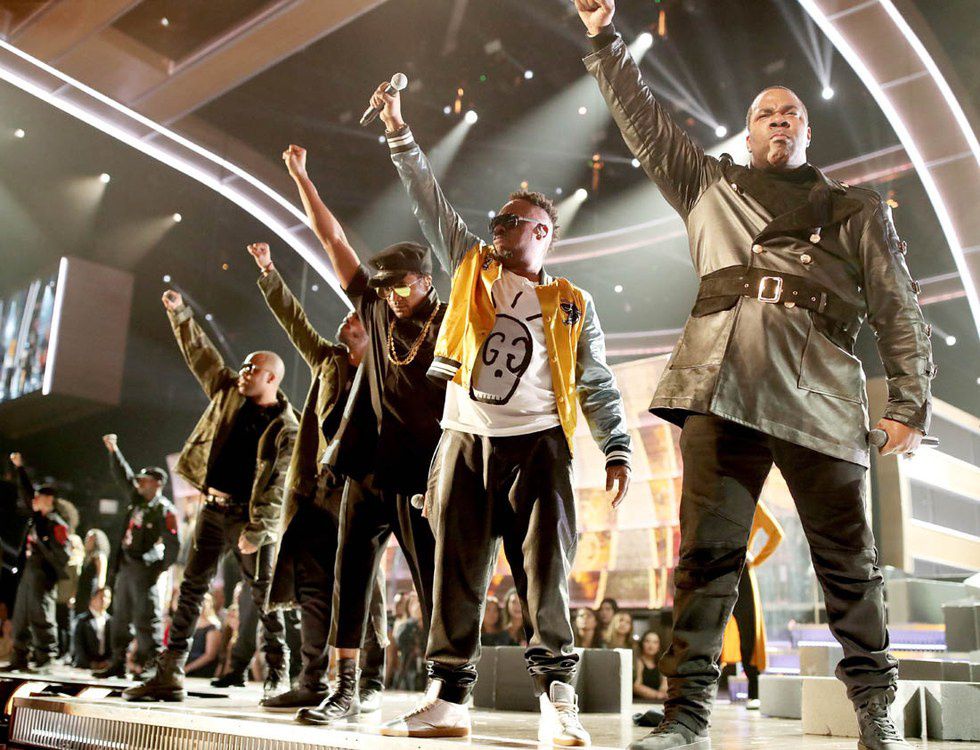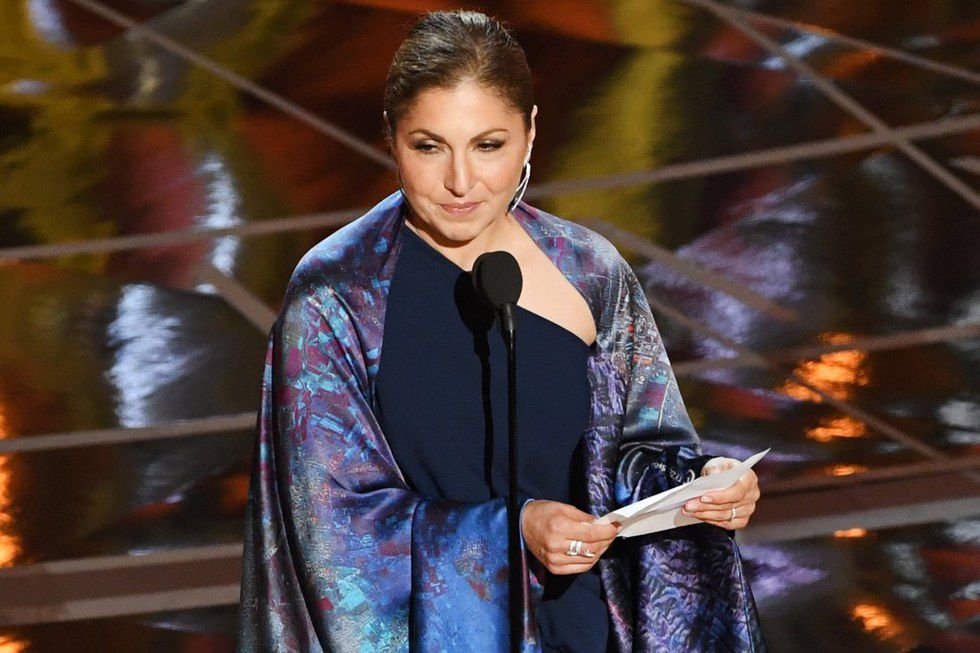It was the 2016 Superbowl. Coldplay was expected to not only participate in a major American tradition but to headline the 50th Halftime Show in history. 3 major voices that have found themselves on my playlists time and time again were about to appear on stage. I’m jumping up and down in my seat to Coldplay’s “Viva La Vida” when I hear Chris Martin say, “Whoever you are, wherever you are, we’re in this together.”
A generalized statement, but an acknowledgment at the troubling condition of the country he was performing in nonetheless.
Bruno Mars makes an appearance and I’m singing along to every lyric of "Uptown Funk" as if my life depends on it. And then, it happens. Beyonce appears and I’m shouting the lyrics to her latest empowering and controversial piece at the top of my lungs. Then, I stare at the dancers behind her, and freeze with mouth agape. Without stopping to make a single political commentary, Beyonce and her entourage of female dancers appear mirroring the attire of the Black Panthers on the football field, fists proudly raised to the sky. Does she really need to say anything at all?
Since then, performances, acceptance speeches, and protests, against the current social standing of the United States and our government have become a Hollywood norm. From Meryl Streep’s Golden Globes acceptance speech, which demeaned President Trump’s behavior towards a disabled reporter and asked for a continuing support of the press, to a “Make America Great Again” dress on the carpet at the Grammys. Celebrities have been using their voices on both ends of the spectrum to further their political beliefs. Many believe this to be the wrong platform to be associating politics with.
For years, the sphere of celebrity gossip, awards shows, and outlandish performances with skimpy outfits have dominated the world of Hollywood, becoming known to most as a mere distraction to what is actually happening in the real world. Through movies, “reality” shows, auto-tuned performances, and celebrity Instagram accounts, the public is seduced into a lovely world of escapism that allows the average Joe to forget about his work at the office and the horrors that lay outside the bubble that is his everyday life. To many, these celebrities are not real people. Rather, they are animated figures out on display for the public to judge and entertain themselves with. Their lifestyle does not grant them privacy or an opinion that is considered uncontroversial.
Out on the sidewalk, the homeless man asking for spare change is not a real person either. He’s not worthy of a response or even eye contact. The prostitute on the corner is only given a disgusted glance, and quite possibly some cash if you’re looking for an alternative type of entertainment. They are all objects with roles less significant in the world than our own.
Then there are the people that you see and acknowledge as actual human beings, but that you never consider as having lives outside of your own. There’s the guy that makes your morning coffee, the teacher who sends home your daughter’s progress reports, and the janitor who takes the trash out of your office at the end of the day.
As hard as it is to imagine, all of these people are capable of emotion and thought. Various situations in their lives have placed them in the positions that they now hold. As people, who are no better or worse than the rest of the public, they are entitled to share the perspective that their lifetime has given them.
As artists, it is part of a musician or actor’s day job to create forms of art through self-expression, which derives from a lifetime of experiences with love, loss, and the world around them. As celebrities, it is a blessing and a burden to have their actions observed by the rest of the world. If they choose to use their job as public figures to raise awareness on issues they feel need to be spoken about, it is in their right to do so. Just as it is the right of the immigrant to refuse to go to work when his or her family’s security in this country is threatened, just as it is the right of the student to walk out of class when they feel unwelcome on the campus they attend, just as it is the right of an athlete to respectfully kneel before the American flag that has yet to stand up for him or her, just as it is the right of every US citizen to peacefully protest for what they believe in.
If some people are being affected every day by our current political climate, I don’t see why our entertainment shouldn’t be affected as well. For some, every moment of their lives has now been distorted and made uncomfortable. Some people are reminded of the color of their skin, their gender, their sexual orientation, their religion, or their nationality every single day. Some cannot choose to escape.
So if our lives have to be a little bit disturbed by everything that is going on in the world when we’re just trying to watch a stupid award show, I say let it be.
Because let’s be real, for those that oppose current acts of social activism, this isn’t about people getting political. This is about people disagreeing with their opinion, calling them racist, and making them feel bad for supporting someone that is oppressing others. If there was a different president around and everyone was supporting him or her, singing “God Bless America,” and painting the United States as a perfect nation with no issues, the oppressors would not have a problem with people getting political.
Just last night, Viola Davis thanked the Academy for her best supporting actress Oscar, stating, "I became an artist — and thank God I did — because we are the only profession that celebrates what it means to live a life." Entertainers are using their positions to do what they can to reach out to the people. They’re writing songs and roles and speeches about more than breakups and Hollywood drama. So the next time you squirm in your seat as Anousheh Ansari accepts Asghar Farhad's Oscar for best foreign language feature out of protest towards President Trumps imposed travel ban, rather than grab your remote, stop, embrace the discomfort, and listen.
























